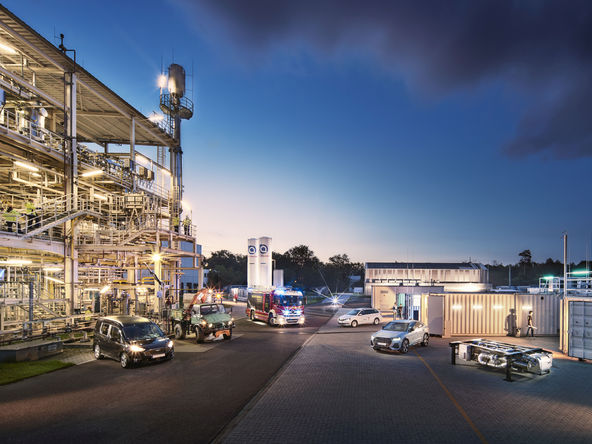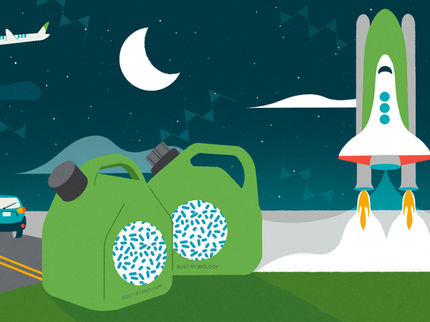Renewable Fuels from Green Refineries
Consortium of Science and Industry Develops Processes and Demand Scenarios for the Mass Production of Synthetic Fuels
Advertisement
synthetic fuels from renewable energy sources are needed to reach the climate goals in the transport sector. So-called refuels promise to reduce CO2 emissions by 90 percent compared to conventional fuels. To cover future needs of heavy-duty vehicles, airplanes, and ships and provide chemical industry with basic substances, we will require the corresponding industrial facilities. Researchers of Karlsruhe Institute of Technology (KIT) and their partners have now launched the REF4FU project to determine the refuel quantities needed and what future green refineries will have to look like to supply these quantities.

Even in case of increasing electrification, renewable liquid fuels will be needed for heavy-duty, air, and ship traffic.
Markus Breig, Amadeus Bramsiepe, KIT
“In spite of increasing electric mobility in the transport sector, we will continue to need liquid fuels for a long time,” says Professor Nicolaus Dahmen from KIT’s Institute of Catalysis Research and Technology (IKFT). He heads the project “Refineries for Future” (REF4FU) and adds: “Only 60 percent of the fuel today is consumed by individual car traffic. When talking about phasing out of combustion engines, it is referred to car engines only.” The REF4FU project is therefore aimed at developing, testing, and standardizing 100 percent renewable fuels for all transport sectors, including water and air traffic.
Renewable Resources as a Basis
REF4FU covers the use of sustainable hydrogen, pyrolysis oil based on biological residues, such as straw or waste wood, methanol from renewable feedstocks, and Fischer-Tropsch oil that corresponds to green crude oil. “The advantage of these products is that they can be transported, stored, and handled just like today’s crude oil,” Dahmen explains and points out that green crude oil will also be needed by chemical industry for the production of plastics, for instance.
Scenarios for Ramping up Production
Refuels are being produced on a pre-industrial scale: “We already have processes and big, technically mature test facilities to produce tons of synthetic fuel,” Dahmen says. However, it is not yet clear how these fuels will be commercialized and transferred to the customers. “We cannot just sell them from barrels at the roadside,” Dahmen says. To find out when and where which quantities of synthetic gasoline, diesel, or kerosene will be needed, researchers use scenarios that also take into account political goals regarding the electrification of road traffic or the expected developments in the different transport sectors. “According to these scenarios, gasoline will disappear from the market first,” Dahmen points out. This will affect future production capacities.
The REF4FU collaboration project coordinated by KIT is funded with around EUR 7 million by the Federal Ministry for Digital and Transport. Apart from the institutes of KIT (IKFT, IMVT, EBI-ceb, IFKM, IIP), the project partners are DLR – The German Aerospace Center, Deutsches Biomasseforschungszentrum (DBFZ), Technische Universität Bergakademie Freiberg, and Chemieanlagenbau Chemnitz, BASF, EDL Anlagenbau, and Ineratec. The MiRO refinery, Porsche, and ASG are associated project partners.






























































